Imagine walking through a forest, your feet gently treading over a hidden universe beneath the soil. What you may not realize is that beneath your steps lies an intricate, unseen network, more complex than any city's subway system. This is the world of mushroom mycelium—a vast, interconnected web that sustains the forest and holds astonishing secrets for our health and well-being.
Now, you might be thinking, 'Mycelium? Sounds like science class stuff.' Worry not; we will not bore you with sciency stuff, but we will tell you how the network running below our feet could make you a healthier human.
So, what exactly is mushroom mycelium, and why should we care about it? Mushroom mycelium is the root-like structure of fungi, forming a vast, interconnected network beneath the soil. This network is a powerhouse of environmental benefits, vital in decomposing organic material and supporting plant life.
But here's the kicker: Mycelium isn't just an ecological hero; it's also packed with potential health benefits for us. From strengthening our immune system to potentially aiding in mental health, Mycelium is like nature's hidden treasure trove of wellness secrets.
Now that we've got that intriguing bit out of the way, let's chat more about why mushroom mycelium is the unsung hero in the story of nature and wellness. In this post, we will explore how this fascinating fungal network can impact our lives, from simple dietary additions to groundbreaking health research.
What is Mycelium: Unveiling the Mystery of Mushroom Mycelium

Have you ever wondered about the foundation of those mushrooms in your favorite dishes? That's where separate mushroom mycelium comes into play.
It's not just the base for mushrooms; it's a key player in their life cycle.
The journey—and by journey, we mean the lifecycle of a mushroom—starts from a spore and progresses to form a dense mass (an extensive underground network), eventually giving rise to the mushroom fruiting body.
But, the fruiting bodies you see and eat are just a small part of the story. The real action is happening underground, where the mycelium feeds and grows.
In simpler terms, Mycelium grown in nature works like a recycling unit, breaking down organic matter and soaking up nutrients. This fungal growth forms an intricate root system beneath the soil. And it's not just about decomposing stuff; Mycelium also contributes to sustainable materials and more.
Mycelium and Human Health
The Nutritional Powerhouse

Mycelium isn't just a part of a mushroom's life cycle; it's a nutrient goldmine. Let's break down some of the key nutrients found in mushroom mycelium:
Beta-Glucans
These are like the superstars of the mycelium world. Beta-glucans are known for their role in bolstering natural immune systems(1).
They don't just defend against the common cold; they're all about keeping your immune system in top shape.
When discussing the best mushrooms for immunity, a splash of Mycelium has to enter the conversation because of the beta-glucans—also known as mushroom polysaccharides—they hold.
Antioxidants
Both the fruiting body and Mycelium pack a punch with antioxidants. These are your body's best friends in fighting off those pesky free radicals (2).
Vitamins and Minerals
We're talking a range of B vitamins, potassium, and even copper. It's like a multivitamin but all-natural and straight from the ground.
Mycelium in Medicine

Regarding health benefits, mushroom mycelium isn't just playing in the minor leagues; it's major league material. Let's dive into a few areas where Mycelium is showing promise:
Boosting Immunity
Remember those beta-glucans? They're not just good for a cold. They're being studied (3) for their role in modulating the body's immune response.
Anti-inflammatory Properties
Mycelium is being looked at for its potential to soothe inflammation (4), which is at the root of many health conditions.
Antibacterial and Antiviral Effects
Some studies (5) suggest Mycelium could help in the fight against certain bacteria and viruses. We're talking about a natural defender here, boosting your natural immune systems.
Mycelium and Mental Health

Now, let's talk brain health. Mycelium isn't just feeding your body; it's feeding your brain too.
Stress Reduction
Those same beta-glucans (6) that help your immune system are also being researched for their potential to reduce stress. It's like a natural chill pill.
Cognitive Support
There's ongoing research (7) into how Mycelium might support cognitive functions, keeping your brain sharp and focused.
Mycelium in Everyday Life
How to Grow Mushroom Mycelium at Home

Growing your own mushroom mycelium? It sounds like a sci-fi movie plot, but it's totally doable!
Here's the lowdown on growing Mycelium: start with a grain substrate—think of it as the soil for your Mycelium. You'll also need some spores or a piece of Mycelium from your favorite mushroom strains.
Mix these with the substrate, and voilà, you're on your way to growing mushroom mycelium at home. Keep it in a cool, dark place, and watch as the Mycelium weaves its magic. Just remember, this isn't about rushing; Mycelium, like the mushroom fruiting body, takes its sweet time to grow.
Incorporating Mycelium into Your Diet

So, you've got your mushroom mycelium grown. Now what? How about adding it to your meals?
First off, you can use Mycelium to grow mushrooms, say Lion's mane mushrooms—that's a no-brainer. Then, you can use Lion's mane mushroom recipes to cook tasty meals with the fruiting body. By the way, the Lion's mane taste gives seafood vibes, allowing you to enjoy a vegan meal while enjoying the feeling of your favorite seafood between your jaws.
But there's more. You can also add powdered Mycelium (rich in bioactive compounds) to your smoothies, soups, or teas. Imagine enjoying a cup of mushroom tea or dipping a straw in a mushroom powder smoothie, knowing that these drinks make you healthier with time.
But we are not done yet. Love baking? Try using brown rice flour infused with Mycelium. It's a simple way to get those active compounds into your diet. And guess what? It's gluten-free!
Mycelium-Based Products

Now, let's talk about mycelium products. These aren't just any products; they're the future of wellness and self-care.
From mushroom supplements intended to boost your health (though, they're not intended to treat, diagnose, or cure any diseases) to skin-care products leveraging the natural goodness of Mycelium, the options are growing.
The Bigger Picture – Mycelium and Environmental Wellness
Mycelium's Role in Sustainability

Mycelium isn't just a wonder of nature; it's also a champion of sustainability. This isn't just helping produce mushrooms; it's about a larger role in environmental health.
The way Mycelium consists of a network, working with other organisms, makes it a natural ally in sustainability efforts. It's not just a passive player; it's an active participant in creating a healthier planet.
Think about mycelial networks as nature's own recycling system. They break down organic materials, turning waste into something useful and reducing greenhouse gas emissions in the process.
This is crucial in our fight against climate change. And the best part? Mycelium does this naturally, without any need for high-tech interventions.
Mycelium in Eco-Friendly Practices

Now, let's look at some real-life applications. Mycelium is being used to create mycelium leather, a durable, completely biodegradable material. Yes, you heard that right—leather that doesn't hurt the planet!
But it doesn't stop there. Mycelium is also making waves in the world of eco-friendly building materials. Imagine buildings constructed with materials that are not only sturdy but also kind to the environment. These are the new and innovative ways we're talking about when we say Mycelium is changing the game.
And here's a fun fact: Mycelium can even be used to create bold threads for fashion and textiles. It's about taking those different stages of mycelium growth and turning them into something practical, stylish, and sustainable.
FAQs About Mushroom Mycelium
Can Mushroom Mycelium Improve Soil Health?
Yes, mushroom mycelium can significantly improve soil health. Mycelium breaks down organic matter as a natural decomposer, turning it into nutrient-rich soil. This process enhances soil fertility, helps water retention and stabilizes soil structure.
By creating a symbiotic relationship with plant roots, Mycelium enhances nutrient uptake for plants, contributing to healthier and more robust plant growth. Its role in soil health is a key aspect of sustainable agriculture and ecological restoration.
Is Mushroom Mycelium Safe To Consume For Everyone?
Mushroom mycelium is generally safe for most people to consume. However, like any dietary supplement or food, individual reactions can vary.
People with mushroom allergies or those taking certain medications should consult a healthcare professional before adding mushroom mycelium to their diet.
It's always advisable to start with small amounts to see how your body reacts, as mushroom mycelium contains potent bioactive compounds that may affect individuals in various ways.
How Does Mushroom Mycelium Contribute To Waste Management?
Mushroom mycelium plays a significant role in waste management through its ability to decompose and transform waste materials. It can break down various organic substances, including agricultural by-products, paper waste, and even certain types of plastic.
Mycelium helps reduce landfill waste and greenhouse gas emissions by converting waste into compost and other useful materials. Its efficiency in breaking down complex materials paves the way for innovative waste management solutions, furthering efforts towards a more sustainable and circular economy.
Key Takeaways
As we've journeyed through the fascinating world of mushroom mycelium, it's clear that this unassuming fungal network is more than just an ecological marvel. It's a bridge connecting us to a healthier lifestyle and a more sustainable world.
From boosting our immune system and mental health to revolutionizing eco-friendly practices and soil health, Mycelium is a testament to the power of nature's solutions.
Mycelium's versatility and benefits remind us that sometimes, the most powerful answers lie right beneath our feet, in the intricate web of nature. As we continue to explore and understand the vast potential of Mycelium, we open doors to new possibilities for health, wellness, and environmental stewardship.
Now, it's over to you. Have you experienced the benefits of mushroom mycelium in your life? Or are you curious to try it out?
Join the conversation and share your thoughts or questions in the comments below. Let's keep exploring and learning together about the wonders of nature and how they can enrich our lives and our planet.
References
- Effects of beta-glucans on the immune system, (1), https://pubmed.ncbi.nlm.nih.gov/17895634/
- Free radicals, antioxidants and functional foods: Impact on human health, (2), https://www.ncbi.nlm.nih.gov/pmc/articles/PMC3249911/
- Immune modulating effects of β-glucan, (3), https://pubmed.ncbi.nlm.nih.gov/20842027/
- Anti-inflammatory properties of edible mushrooms: A review, (4), https://pubmed.ncbi.nlm.nih.gov/29146352/
- The Antibacterial Activity of Coriolus versicolor Methanol Extract and Its Effect on Ultrastructural Changes of Staphylococcus aureus and Salmonella Enteritidis, (5), https://www.frontiersin.org/articles/10.3389/fmicb.2016.01226/full
- Anti-stress action of several orally-given β-glucans, (6), https://pubmed.ncbi.nlm.nih.gov/21048809/
- Three Different Types of β-Glucans Enhance Cognition: The Role of the Gut-Brain Axis, (7), https://pubmed.ncbi.nlm.nih.gov/35308288/




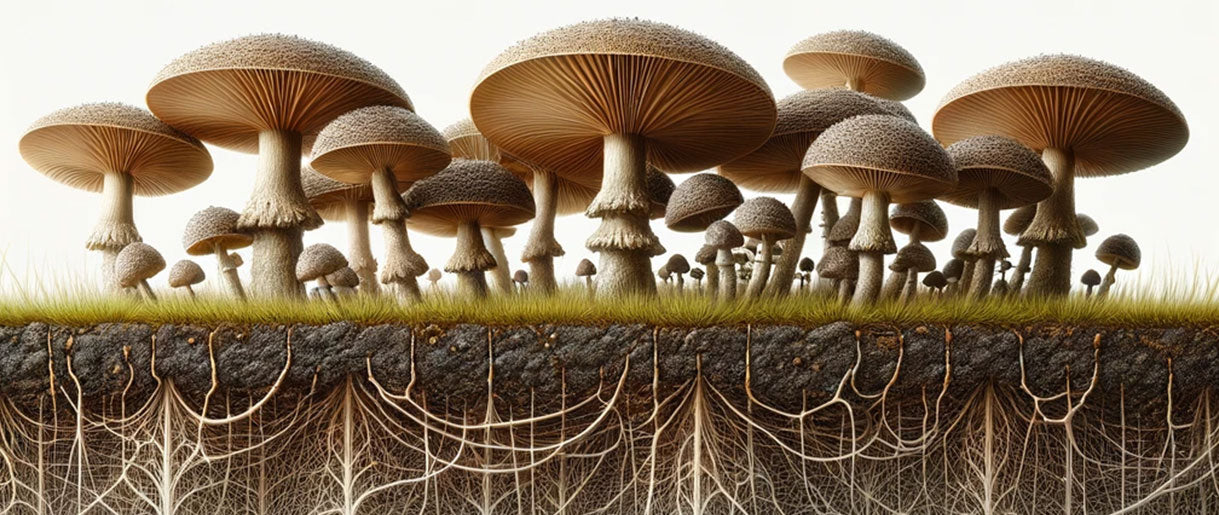

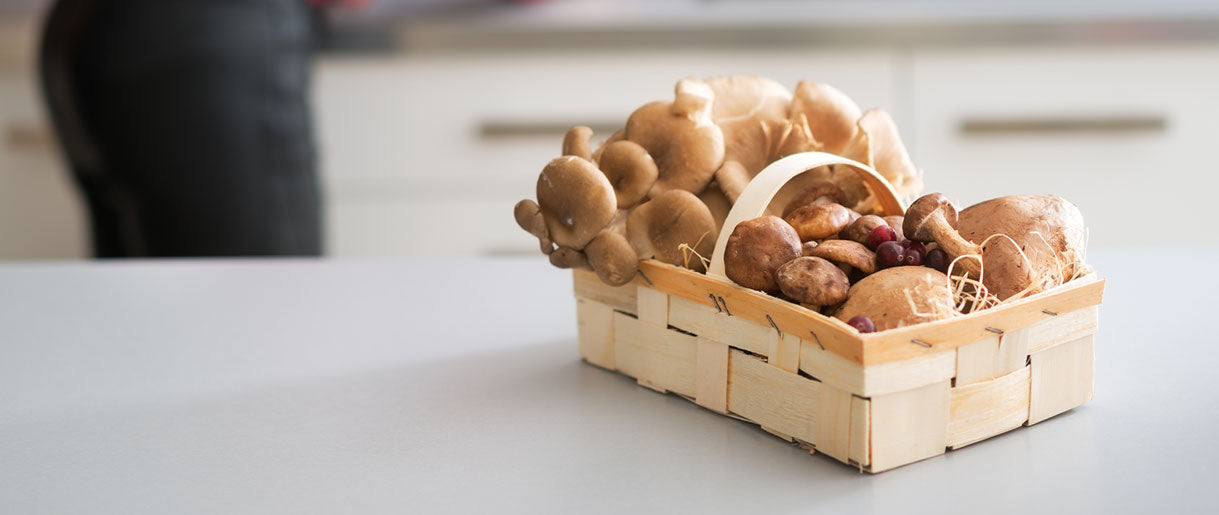
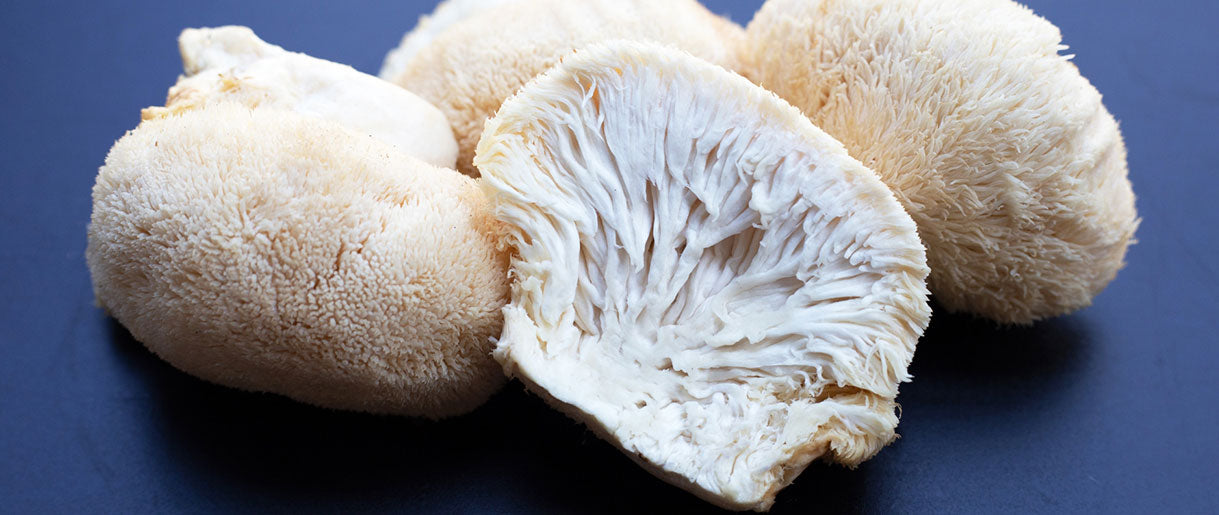
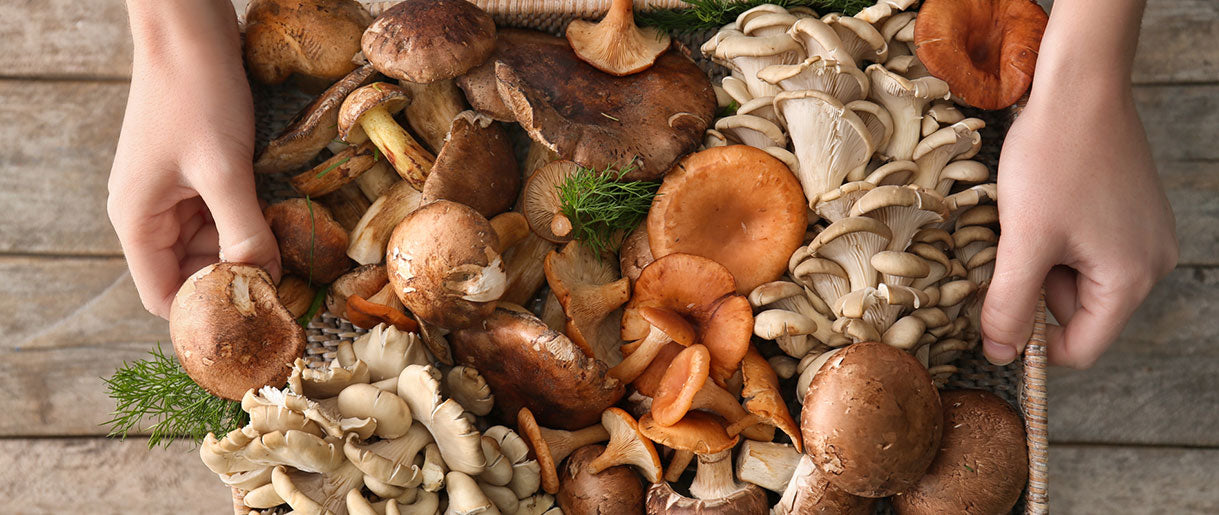
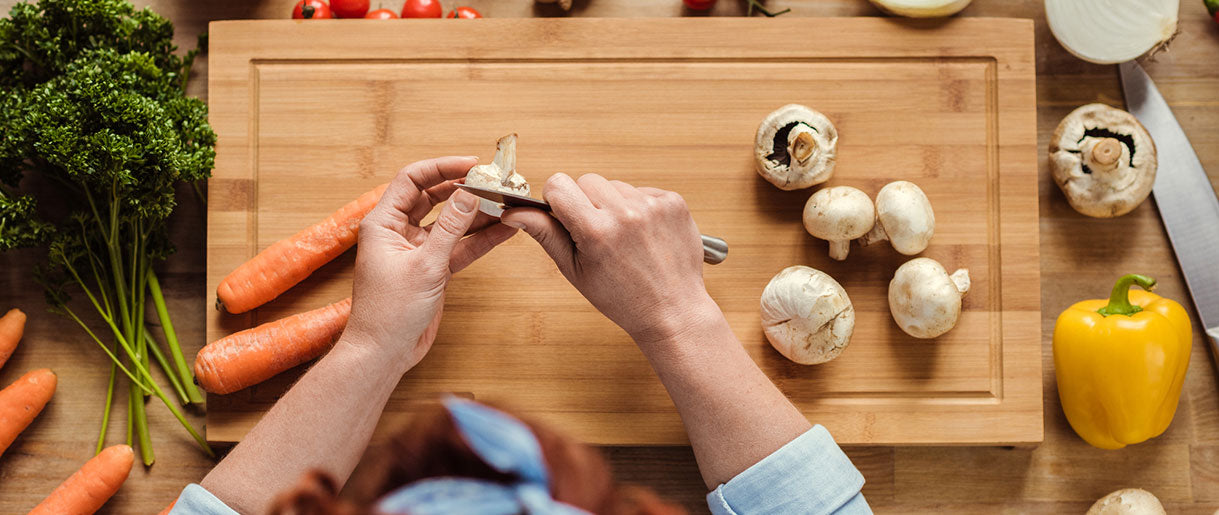
Let Us Know Your Comments